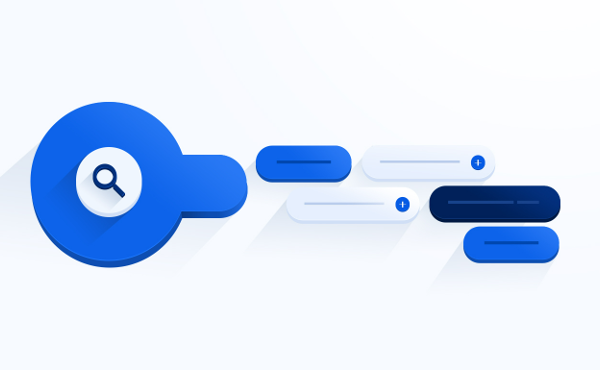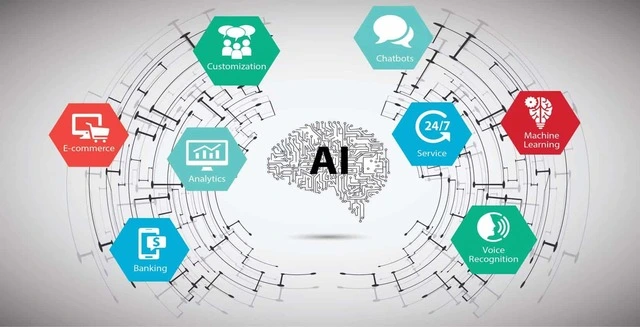
Marketing is just one of the industries that artificial intelligence (AI) is changing at a rate that has never been seen before. The marketing landscape is changing dramatically as AI technology develops. This blog examines artificial intelligence's role in marketing and how it might affect work positions. Will AI transform marketing, or will it replace it? Let's investigate this fascinating query.
Understanding AI in Marketing
To improve efficiency and efficacy in reaching and engaging clients, "Understanding AI in Marketing" discusses how artificial intelligence is used in marketing to analyze data, tailor content, and automate processes.
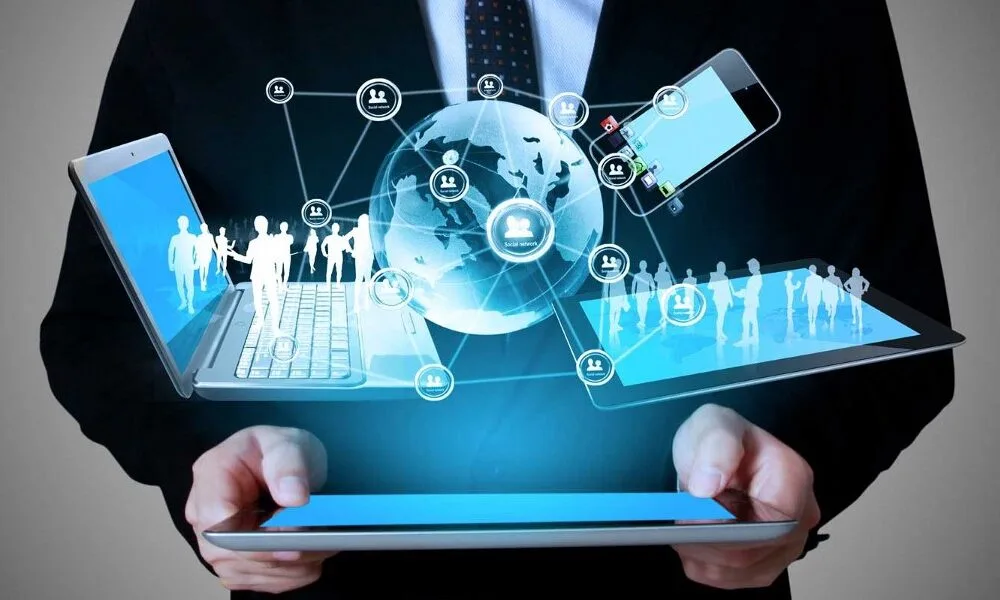
Definition of AI: Artificial intelligence, or AI, is the emulation of human intellect in robots designed to have human-like thought and learning processes. AI is being used in marketing for various purposes, including predictive analytics, targeted content distribution, and data analysis.
AI in Marketing Trends: The application of AI in marketing is expanding quickly. AI is being used more and more by marketers to improve customer experiences, automate processes, and analyze consumer behavior. Artificial Intelligence (AI) is becoming a crucial component of digital marketing strategy, with chatbots offering quick customer care and algorithms forecasting the next big trend.
Benefits of AI: AI has many benefits for marketing. It performs exceptionally well in data analysis, enabling marketers to swiftly and precisely process enormous volumes of information. Another important advantage of AI is personalization, which allows for recommendations and information that are specifically catered to each user. Furthermore, AI increases productivity by mechanizing tedious jobs, freeing up marketers to concentrate on more important endeavors.
The Evolution of Marketing Jobs
"The Evolution of Marketing Jobs" examines how the introduction of AI has changed traditional marketing positions, emphasizing the development of new roles and the use of cutting-edge tools to boost productivity and creativity.
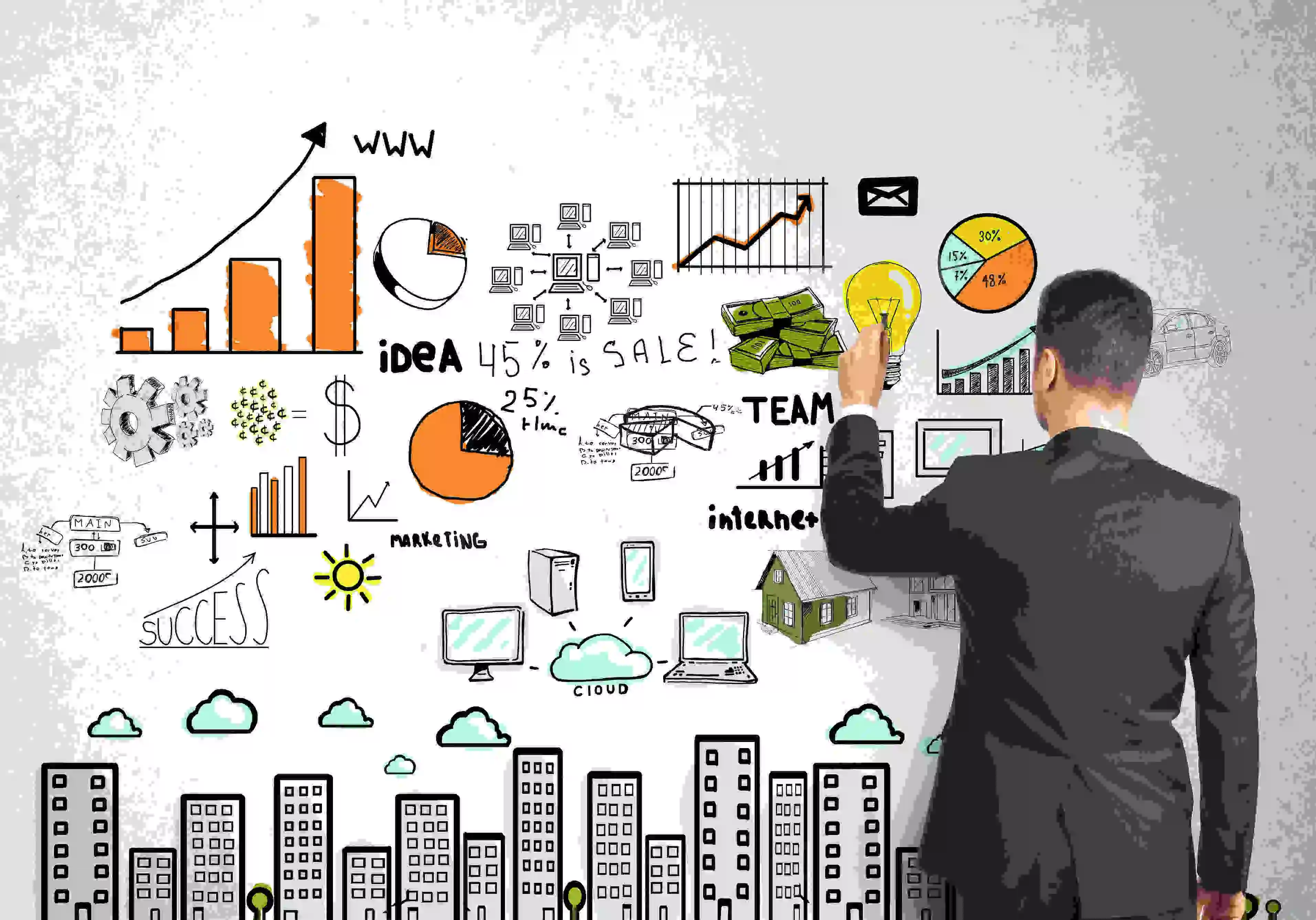
Traditional Marketing Roles: Before the advent of artificial intelligence, the main responsibilities of marketing positions were customer connection management, content development, campaign planning, and market research. These jobs took a lot of time and manual labor.
Impact of AI: These conventional roles are changing due to AI. AI-driven technologies, for instance, are now capable of handling data analysis, email marketing campaign automation, and content generation. Instead of eradicating employment, this change is creating new ones that call for a combination of marketing knowledge and AI skills.
Examples of AI Tools: Chatbots for customer support, predictive analytics platforms for predicting market trends, and automation tools for optimizing marketing campaigns are some of the common AI tools used in marketing. With the help of these technologies, marketers may work more effectively and efficiently and provide greater outcomes.
AI's Role in Marketing Automation
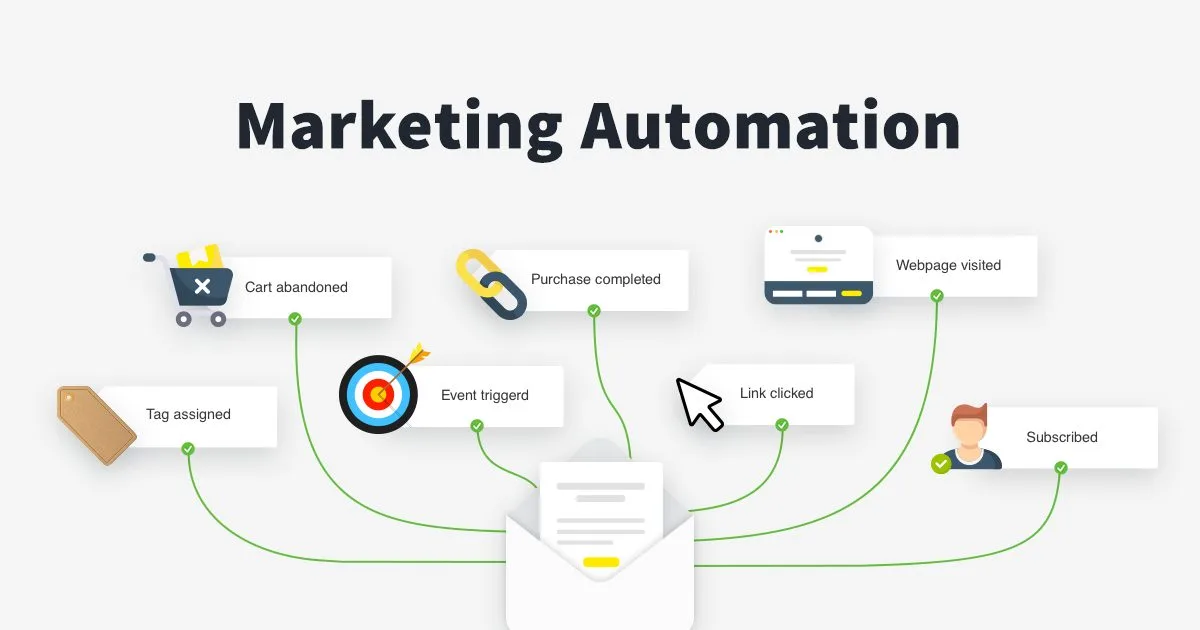
"AI's Role in Marketing Automation" describes how artificial intelligence (AI) can automate marketing operations including lead generation, content personalization, and campaign management, resulting in major improvements in efficiency and effectiveness.
Automated Campaigns: AI streamlines several marketing campaign tasks, including email list management and social media post scheduling. By automating tasks, you may increase productivity and guarantee that audience communications are constant.
Personalization: When it comes to providing recommendations and tailored information, AI is essential. AI can customize offers and messaging to specific customers based on their behavior and interests, increasing engagement and conversion rates.
Lead Generation: Artificial Intelligence (AI) facilitates lead generation procedures by recognizing prospective clients and guiding them through the sales funnel. To identify the best prospects and recommend the most productive engagement tactics, AI systems evaluate data.
AI vs. Human Creativity
"AI vs. Human Creativity" compares and contrasts the benefits and drawbacks of artificial intelligence (AI) in marketing, highlighting the fact that although AI is great at data-driven activities, human creativity is still necessary for innovation and emotional connection.
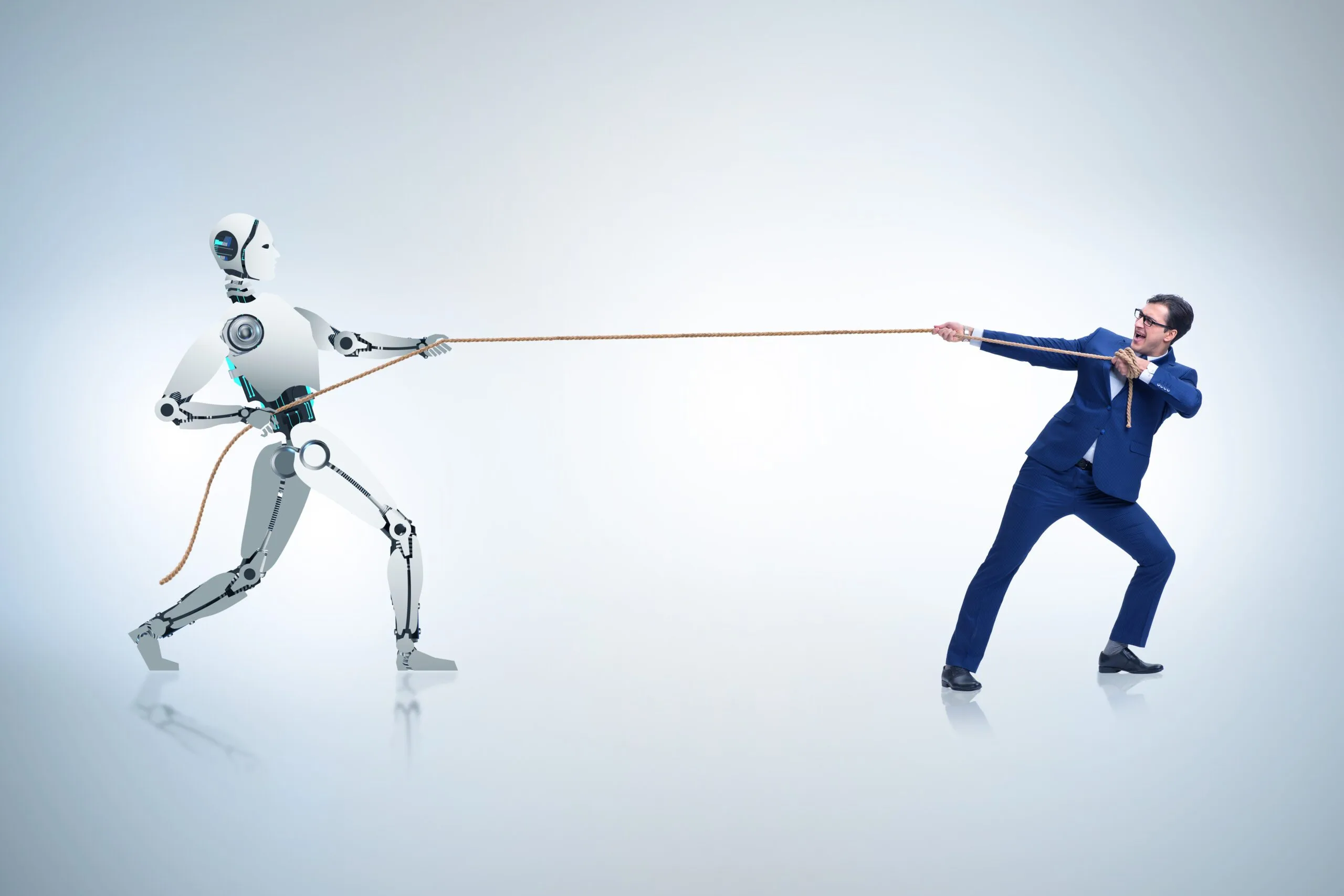
Creativity in Marketing: AI is great at data-driven activities, but in marketing, human ingenuity is still unmatched. Where humans excel above AI is in creative thinking, emotional intelligence, and storytelling. Successful advertising efforts frequently depend on these peculiarly human qualities.
AI's Limitations: AI is not perfect; it struggles especially with context and subtlety recognition. It might have trouble with tasks that call for a high level of empathy, cultural knowledge, or intricate problem-solving. Therefore, rather than taking the place of human innovation, AI enhances it.
Examples: AI and human creativity are regularly combined in marketing strategies that succeed. AI, for example, might offer analytical insights to guide a creative approach, but human marketers are still responsible for the execution—creating engrossing stories, eye-catching imagery, and emotional appeals.
The Fear of Job Replacement
"The Fear of Job Replacement" addresses concerns about AI taking over marketing jobs, explaining that AI is more likely to transform roles and create new opportunities rather than completely replace human marketers.

Public Perception: Many people are afraid AI will replace digital marketers, which will result in employment losses. Though frequently founded in false beliefs, this fear is natural.
Reality Check: Marketing jobs are more likely to be enhanced by AI than replaced by it. AI frees up marketers to concentrate on strategic, innovative, and relationship-building duties by handling repetitive tasks. Marketing positions are here to stay since human oversight, interpretation, and creativity are necessary.
Upskilling Opportunities: To prosper alongside AI, marketers need to adopt upskilling. Gaining proficiency with AI tools and comprehending their uses can improve a marketer's worth and flexibility in a dynamic environment.
Case Studies: AI Success Stories in Marketing
Explore real-world examples of AI success in marketing, including how companies like Netflix and Amazon use AI to enhance customer experiences and drive sales.
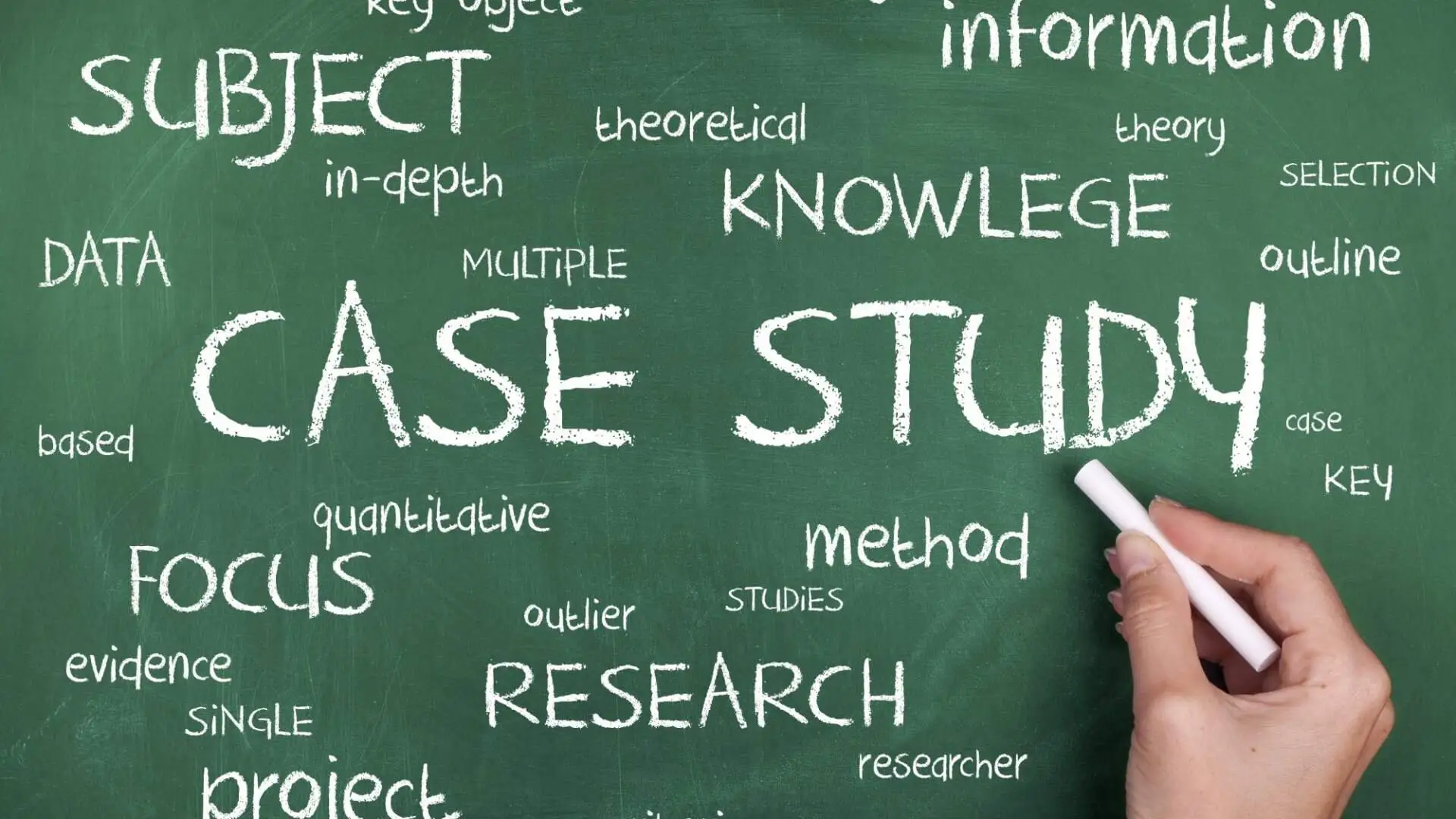
Netflix's Recommendation Engine: AI is used by Netflix to assess user preferences and make tailored recommendations. The usage of AI has greatly increased user engagement and pleasure.
Amazon's Product Recommendations: AI is used by Amazon to make product recommendations based on the tastes and behavior of its customers. This tactic has increased revenue and enhanced customer satisfaction, demonstrating its high efficacy.
Ethical Considerations of AI in Marketing
To ensure fair and ethical marketing practices, "Ethical Considerations of AI in Marketing" addresses the significance of responsible AI use, concentrating on issues like data protection, transparency in algorithmic judgments, and the mitigation of biases.
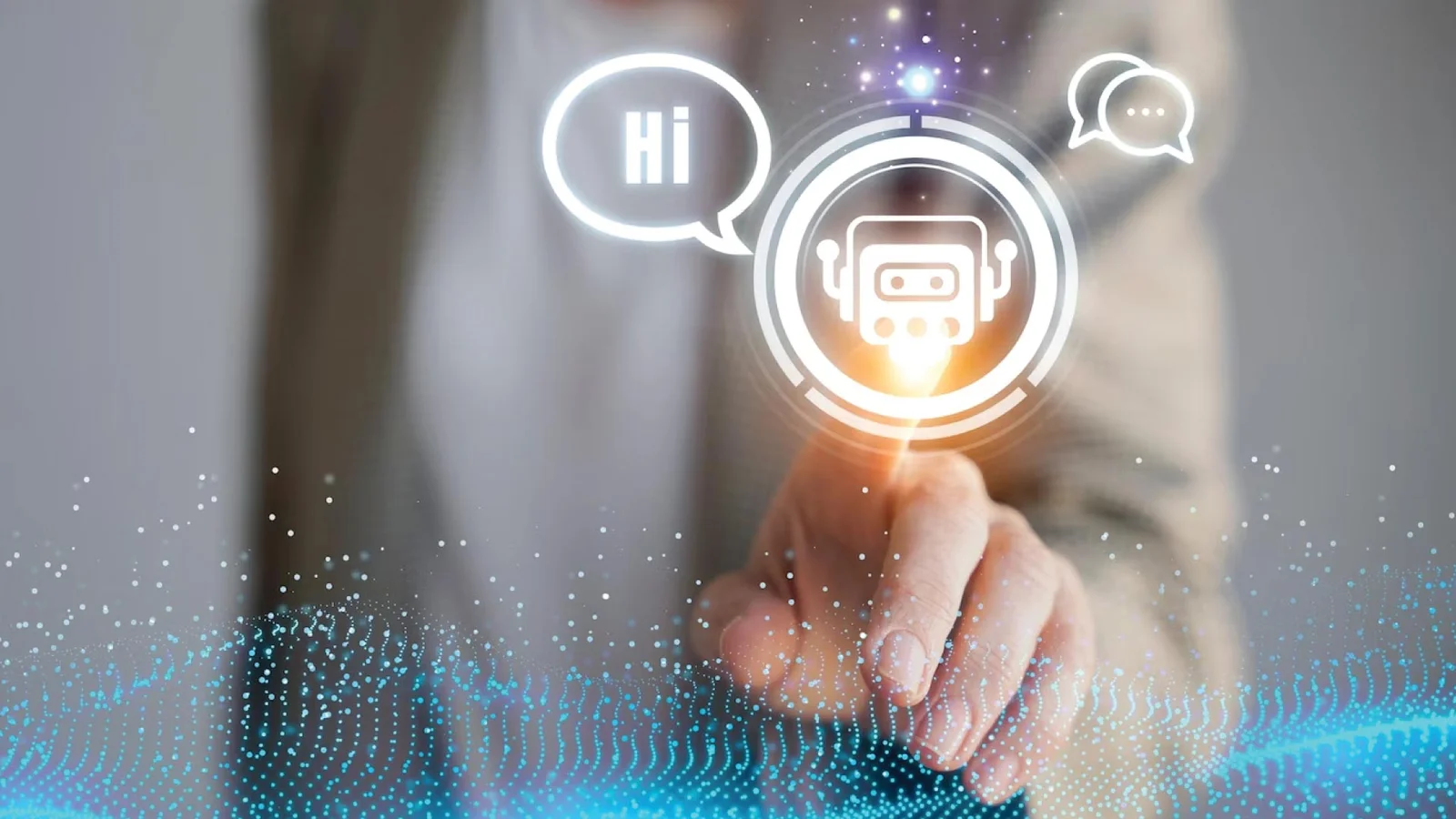
Data Privacy: AI ethics are crucial, particularly when it comes to data privacy. Marketers need to make sure AI systems manage customer data ethically and openly.
Transparency: AI algorithms and decision-making procedures must be transparent. Customers need to know how their data is handled and what influences suggestions made by artificial intelligence.
Bias: Fair and equitable marketing tactics need to address AI biases. Biases can be reduced by ensuring a variety of data inputs and routinely auditing AI systems.
Job Opportunities in AI Marketing
"Job Opportunities in AI Marketing" examines newly created opportunities in the AI-powered marketing sector, such as advisors assisting companies in successfully integrating AI strategies, data analysts skilled in AI tools, and AI marketing professionals.

AI Marketing Specialists: AI marketing specialists, who establish and oversee AI-driven strategies, are among the new employment roles brought about by the growing use of AI in marketing.
Data Analysts: The need for data analysts with AI tool expertise is rising. These experts evaluate data insights to direct marketing choices.
AI Marketing Consultants: AI consultants may bridge the gap between technology and marketing by assisting companies in successfully implementing AI initiatives.
Future Prospects of AI in Marketing Jobs
"Future Prospects of AI in Marketing Jobs" looks at the expected expansion and changing uses of AI in marketing. It examines how the industry's continuing integration of AI is anticipated to improve productivity, innovation, and strategic decision-making, highlighting the possibility of successful cooperation between AI and human marketers.

AI's Continued Growth: It is anticipated that AI will become increasingly prevalent in marketing, providing more advanced tools and uses.
Human-AI Collaboration: Marketing in the future will depend on human-AI cooperation. Businesses can attain optimal outcomes by merging human ingenuity with AI's analytical prowess.
Predictions: Experts believe AI will revolutionize the digital marketing space rather than displace it. Marketers who are flexible and willing to use AI will prosper in this new environment.
Conclusion
While AI is certainly changing the marketing landscape, digital marketers will not be replaced by it. Rather, AI is a potent instrument that improves data-driven decision-making, efficiency, and customization. Marketers may use AI by upskilling and embracing this technology to produce more creative and successful ads. Artificial intelligence (AI) and human creativity working together harmoniously will shape marketing in the future, making it a more dynamic and influential sector. Try 360 Marketing Tool blogs to learn more effective tips about marketing.
What to read next

